Key findings
- Using open-source techniques, weapons analysis and trade data, Amnesty International identified 23 major producers of less lethal equipment and hunting ammunition whose products were used unlawfully by security forces in more than 50 protests in 25 countries worldwide.
- Evidence strongly indicates longstanding patterns of irresponsible trade in both equipment designed for law enforcement and hunting ammunition.
- Case studies show how the lack of transparency and state regulation of the trade in law enforcement equipment is enabling human rights violations and undermining the right to protest in all regions.
- Some companies have continued to export weapons to countries with poor human rights records despite repeated reports of abuse of less lethal and other equipment.
- Companies manufacturing this equipment have a responsibility to respect human rights and should not be exporting to abusive police forces.
- Amnesty International is calling on states to support a robust Torture-Free Trade Treaty that would prohibit inherently abusive law enforcement equipment and strictly control the trade in law enforcement equipment that is often used for torture or other ill-treatment, such as tear gas, rubber bullets, batons and stun grenades.
Overview of cases
In Bahrain in 2011, at least 12 people died after security forces unleashed a wave of repression in response to anti-government protests, including firing tear gas grenades directly at protesters and into homes. Two years later in Türkiye, at least three people were killed – including a 14 year-old boy who was struck on the head by a tear gas grenade fired by security forces – and over 8,000 were injured when peaceful protesters faced an onslaught of tear gas and water cannon, while security forces beat protesters with batons.
Amnesty International and other non-governmental organizations condemned these human rights violations at the time, and campaigned against the trade in tear gas and other law enforcement equipment to Türkiye and Bahrain. Yet ten years on, Amnesty International’s research shows that some of the same companies, such as South Korea’s CNO Tech and DaeKwang, the US company Combined Systems and Brazil’s Condor, are still supplying less lethal equipment to abusive security forces across the world in other crisis situations, as protesters continue to be killed and injured for exercising their rights.
Amnesty International’s Crisis Evidence Lab and the Digital Verification Corps analysed more than 500 images and videos from protests over the last five years, verifying more than 100 incidents where police officers deployed law enforcement equipment and hunting ammunition unlawfully. Using open-source techniques and weapons analysis, corroborated with trade data, previous Amnesty International research and reports from other organizations, Amnesty International also identified 23 major producers of less lethal and other equipment whose goods were used unlawfully in more than 50 protests in 25 countries worldwide. While it is not always possible to trace precise chains of custody for specific types of weapons, this evidence strongly indicates longstanding patterns of irresponsible trade in both equipment designed for law enforcement and hunting ammunition.
VERIFIED CASES OF PROTESTS WHERE POLICE MISUSED WEAPONS
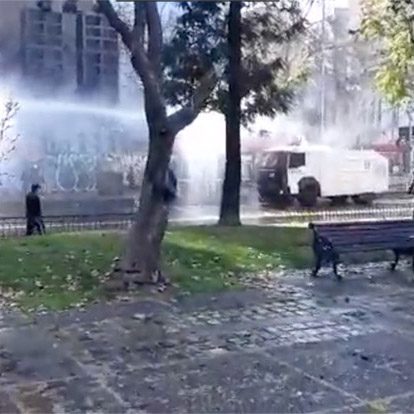
Nukol Makina, Turkey
Ejder Toma water cannon
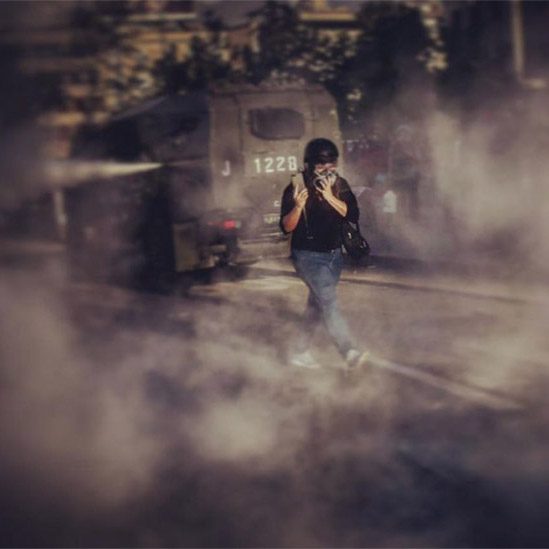
Mahindra Emirates Vehicle Armouring, UAE, India
Mahindra Marksman armoured personnel carrier
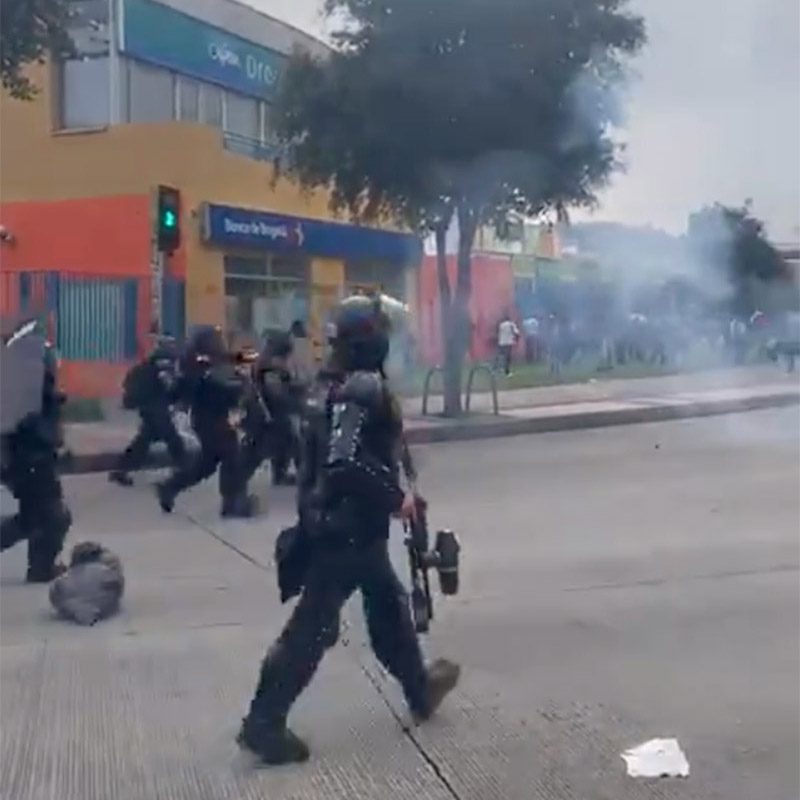
Pepper Ball, USA
Grenade launcher
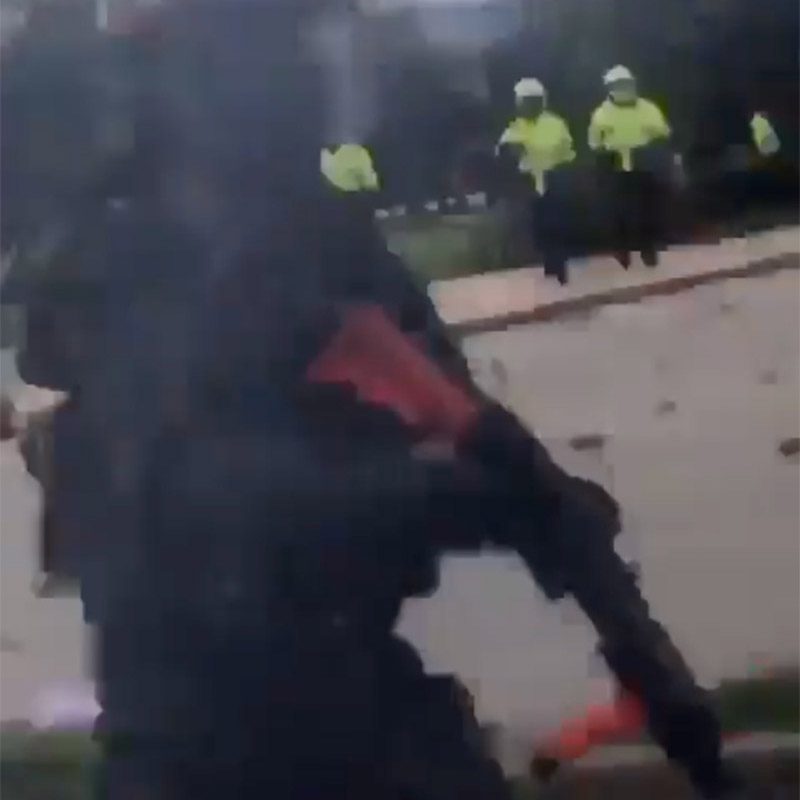
Combined Systems, USA
37/38mm grenade launcher
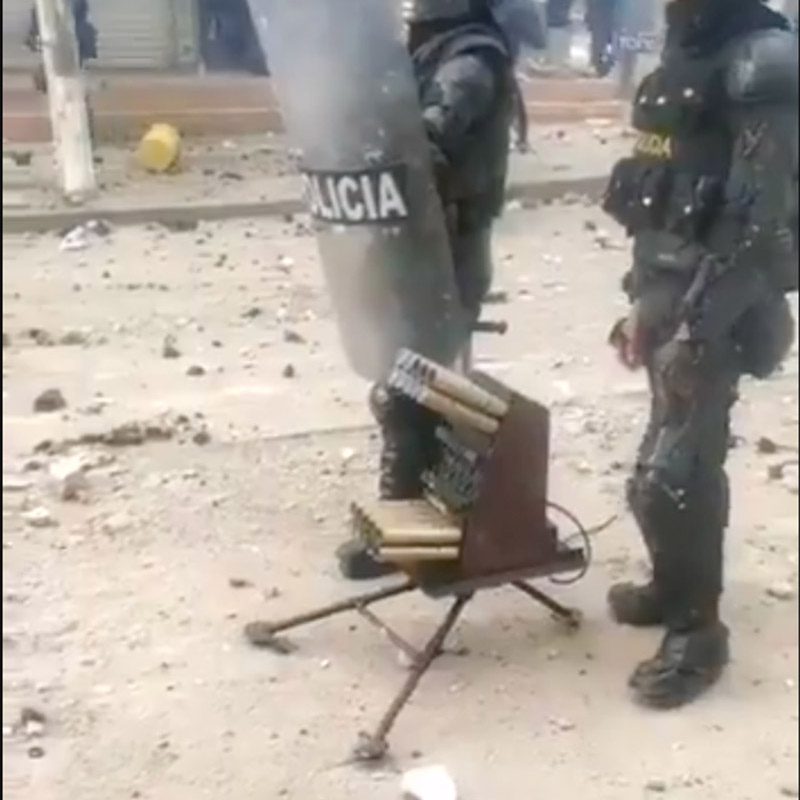
Combined Systems, USA
Venom grenade launcher

Shaanxi Baoji Special Vehicles Co.Ltd, China
Baoji Special armoured personnel carrier
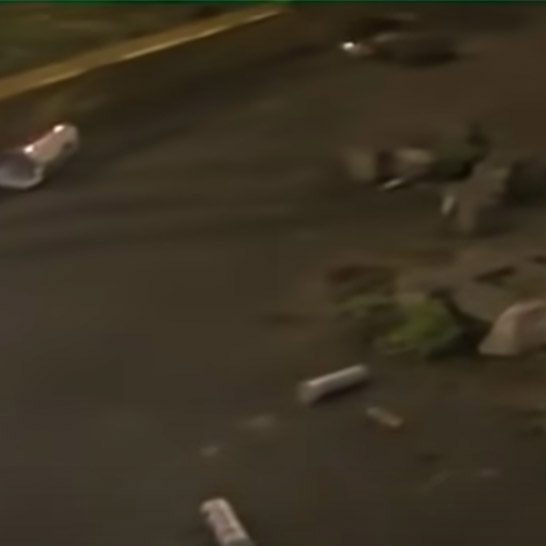
Nonlethal Technologies Inc, USA
Tear gas (MP-4L-CS)
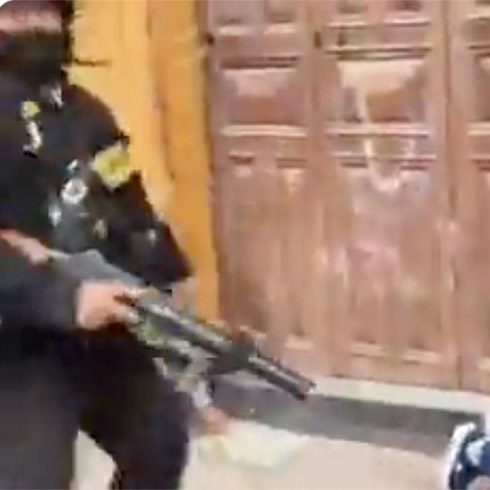
Federal Laboratories, USA
Model 201-z grenade launcher
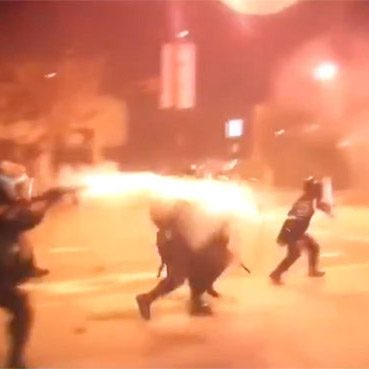
Federal Laboratories, USA
Model 201-z grenade launcher
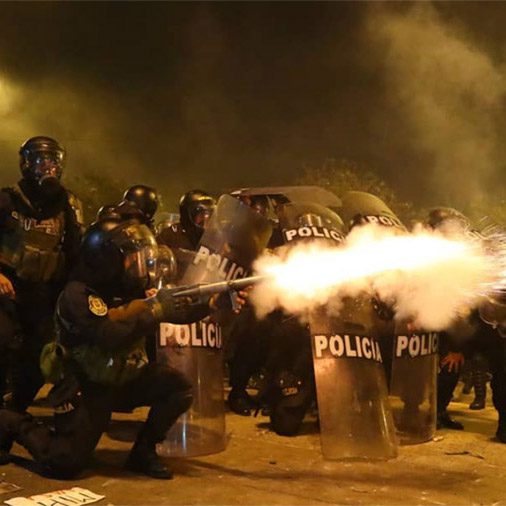
Federal Laboratories, USA
Model 201-z grenade launcher
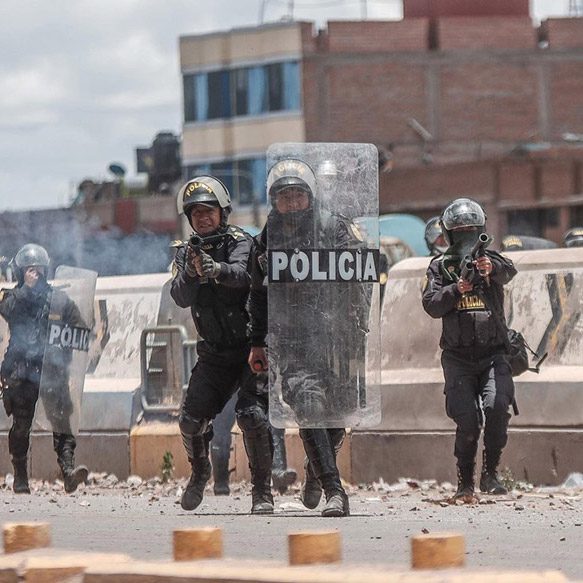
SIPJA Technology Co.LTD, South Korea
SJ 600N grenade launcher
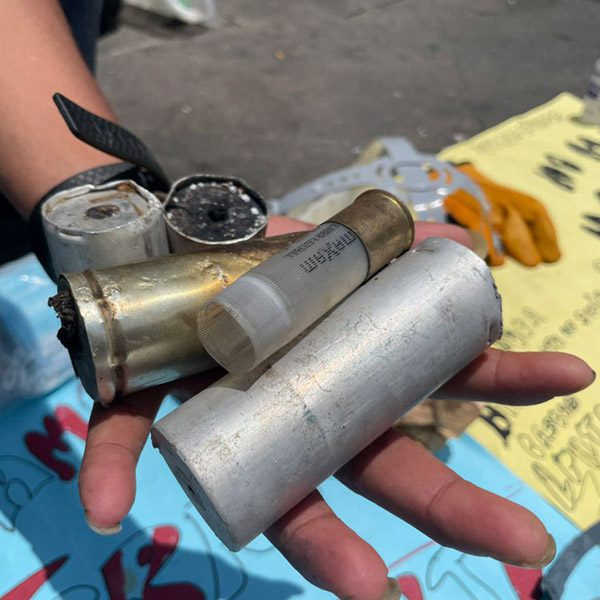
Maxam Corporation, Spain
Maxam shotgun shell
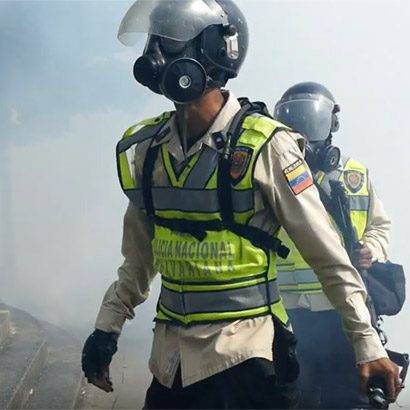
Condor Nonlethal Technologies, Brazil
Tear gas
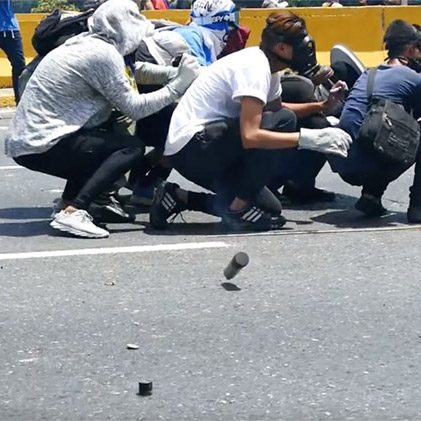
Falken, Spain
Tear gas
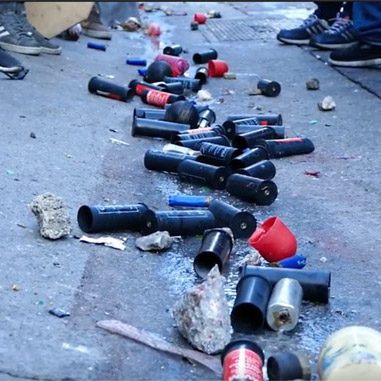
Cavim, Venezuela
Tear gas
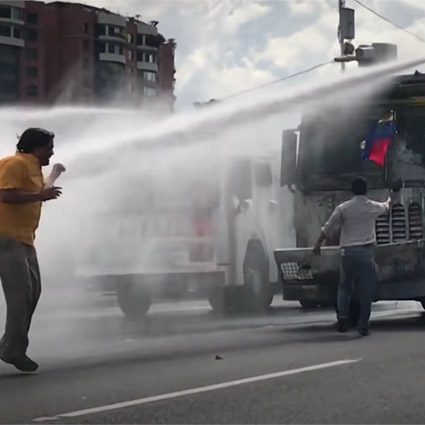
Norinco, China
Watercannon
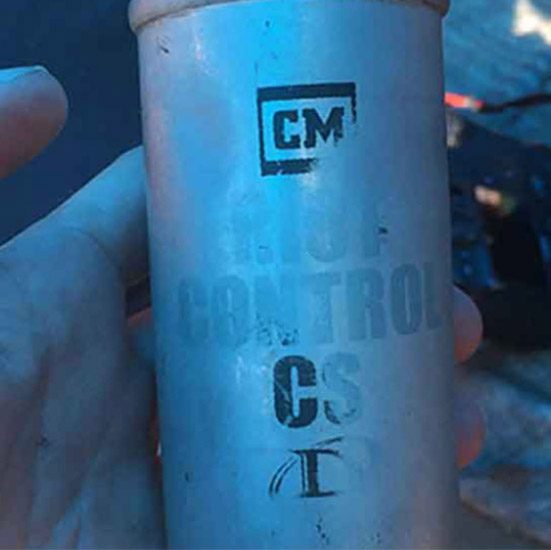
The Safariland Group, USA
Tear gas
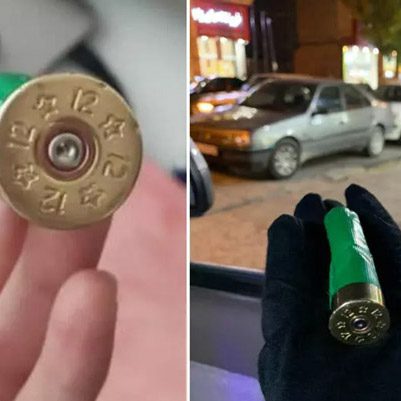
Cheddite, France
Rubber bullet cartridges
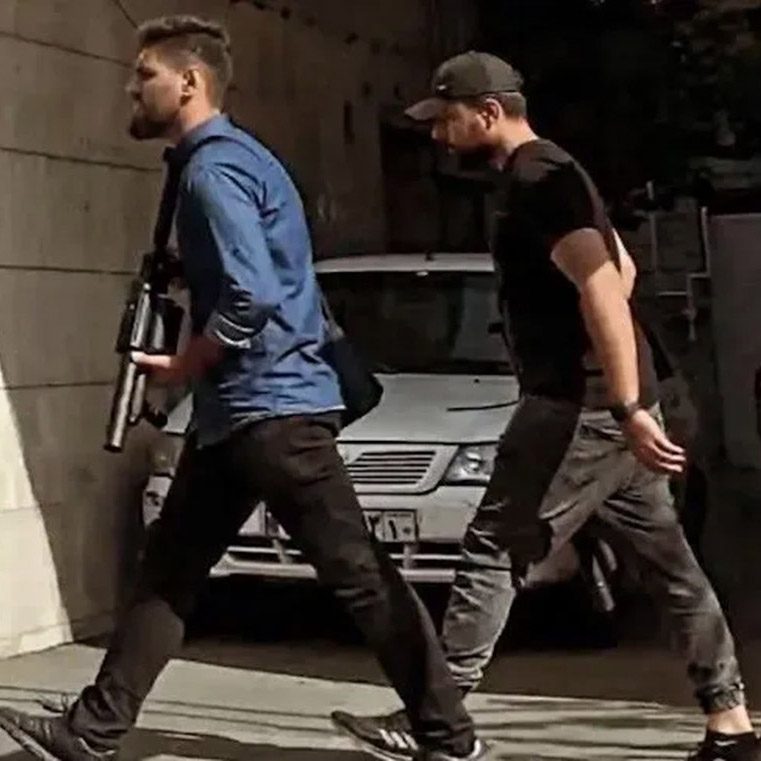
SIPJA Technology Co.LTD, South Korea
SJ 600N grenade launcher
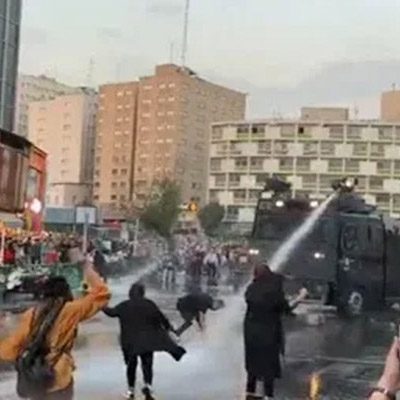
Jino Motors, South Korea
TITAN 6X4/6X6
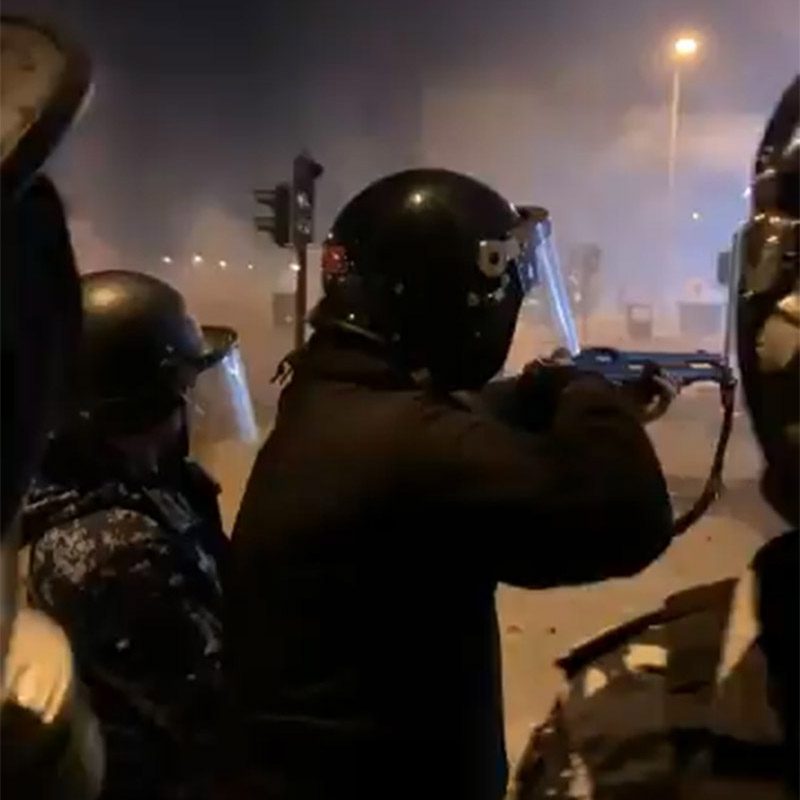
SAPL, France
Rubber bullets SAPL GOMM COGNE
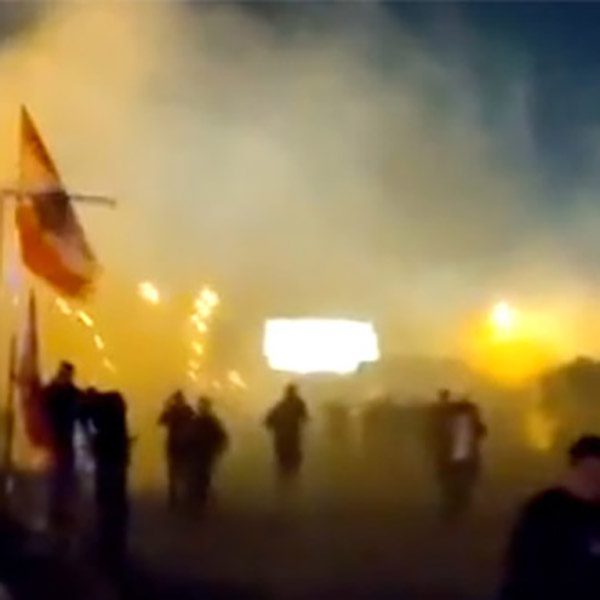
SAE ALSETEX, France
Tear gas grenades
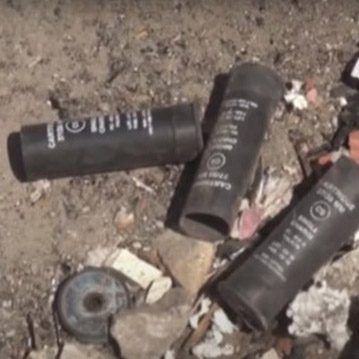
Falken, Spain
FC-822M tear gas grenades
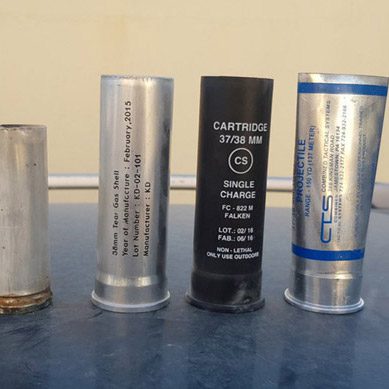
Combined Systems, USA
Tear gas
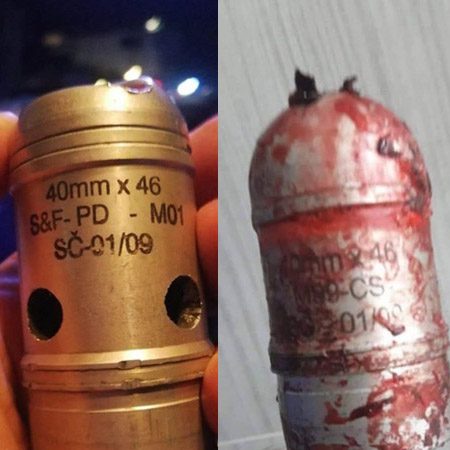
Sloboda Cacak, Serbia
Grenade
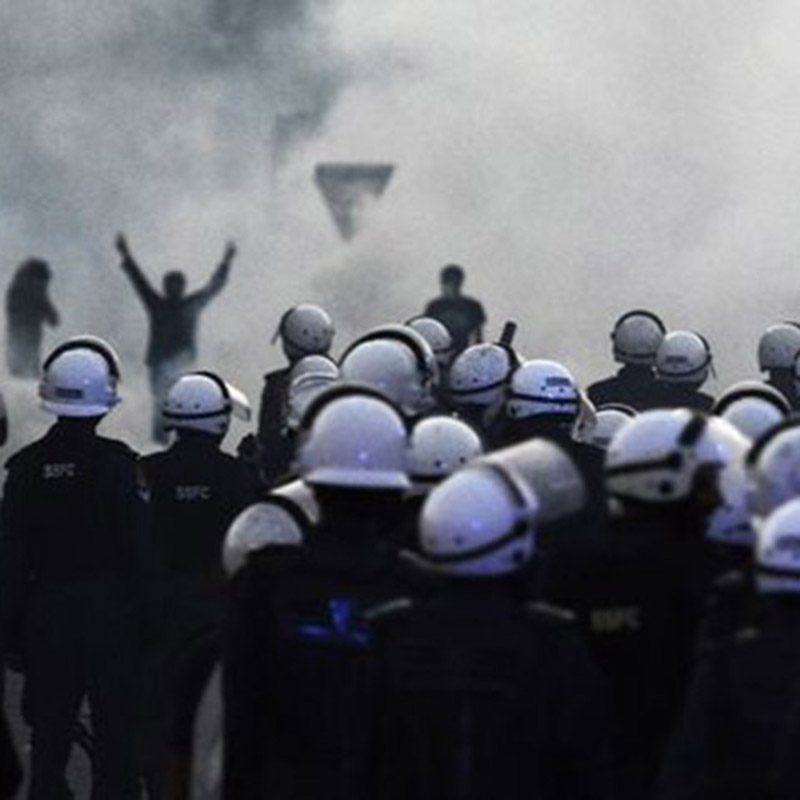
DaeKwang Chemical, South Korea
Tear gas
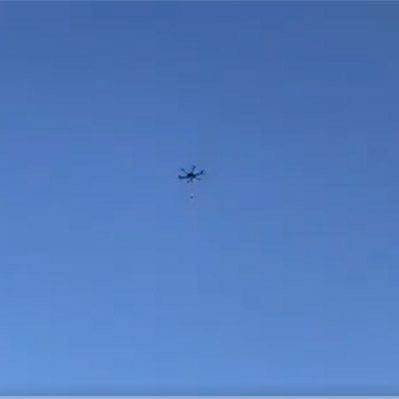
DJI, China
Drone
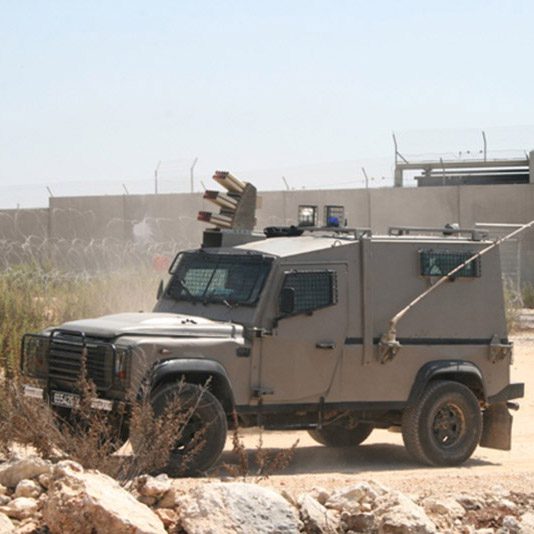
Combined Systems, USA
Venom grenade launcher
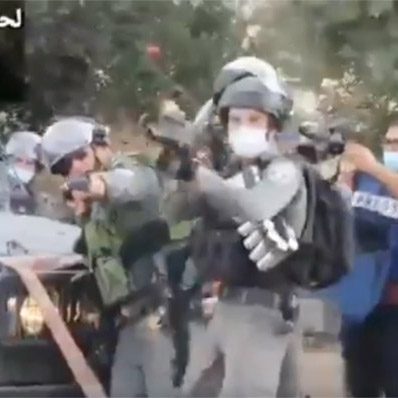
FAB Defense, Israel
FD-203 grenade launcher
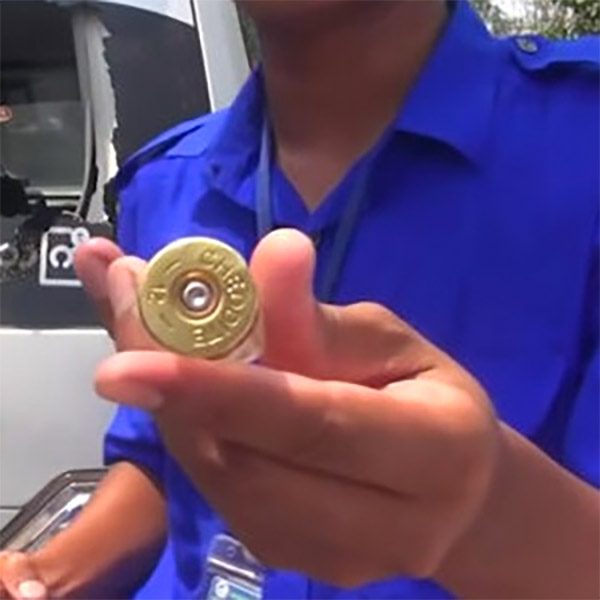
Cheddite, France
Rubber bullet cartridges
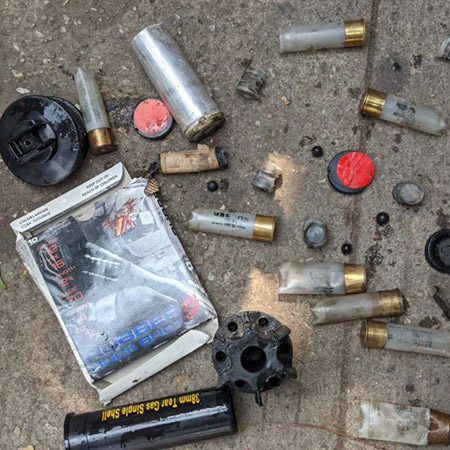
DaeKwang, South Korea
Tear gas
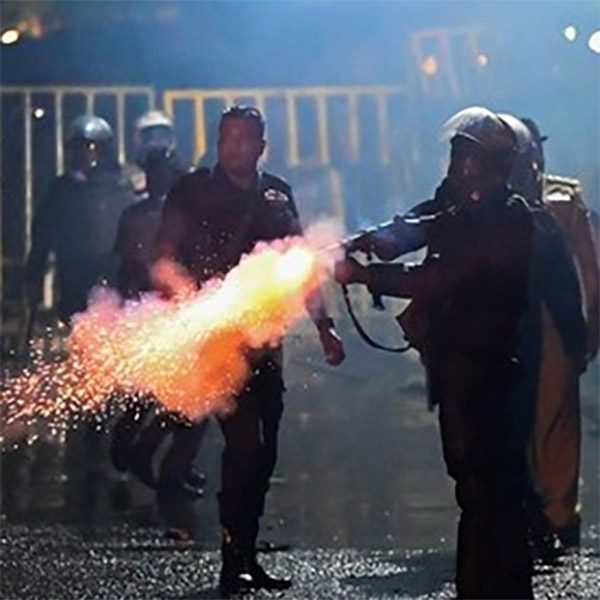
Norinco, China
NARG 38 Grenade launcher
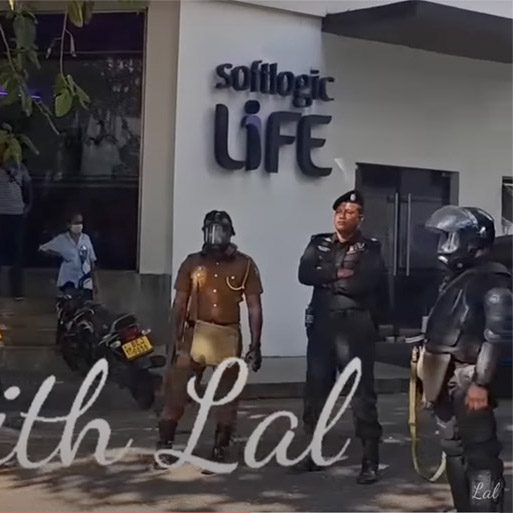
Norinco, China
NARG 38 Grenade launcher
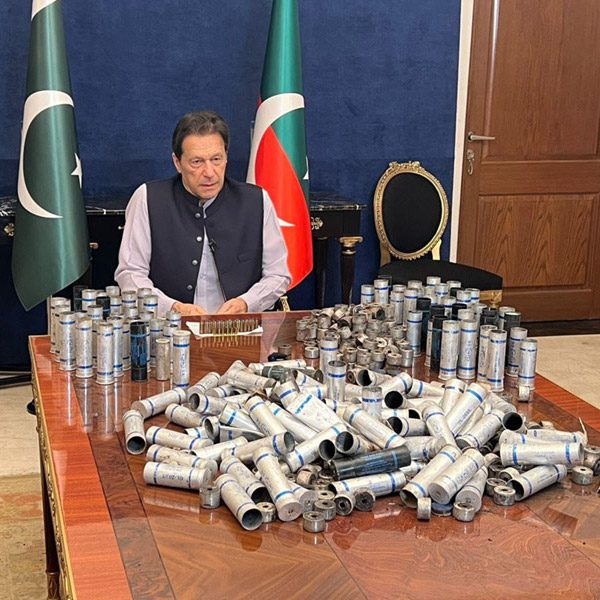
Condor Nonlethal Technologies, Brazil
Condor GL-203/L tear gas
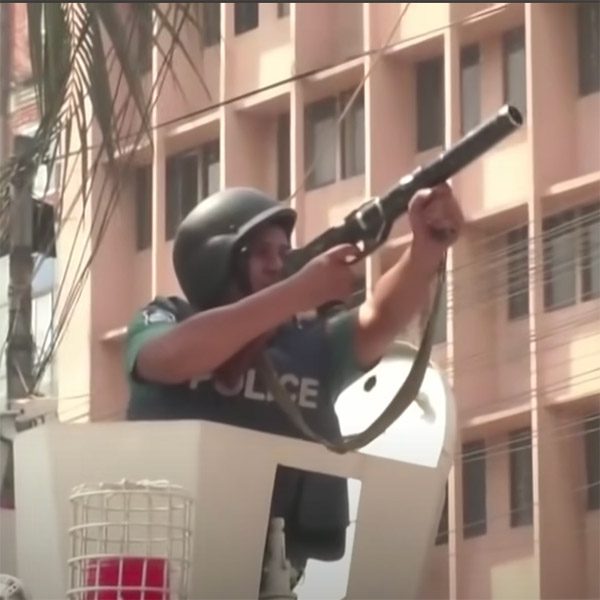
Norinco, China
NARG 38 Grenade launcher
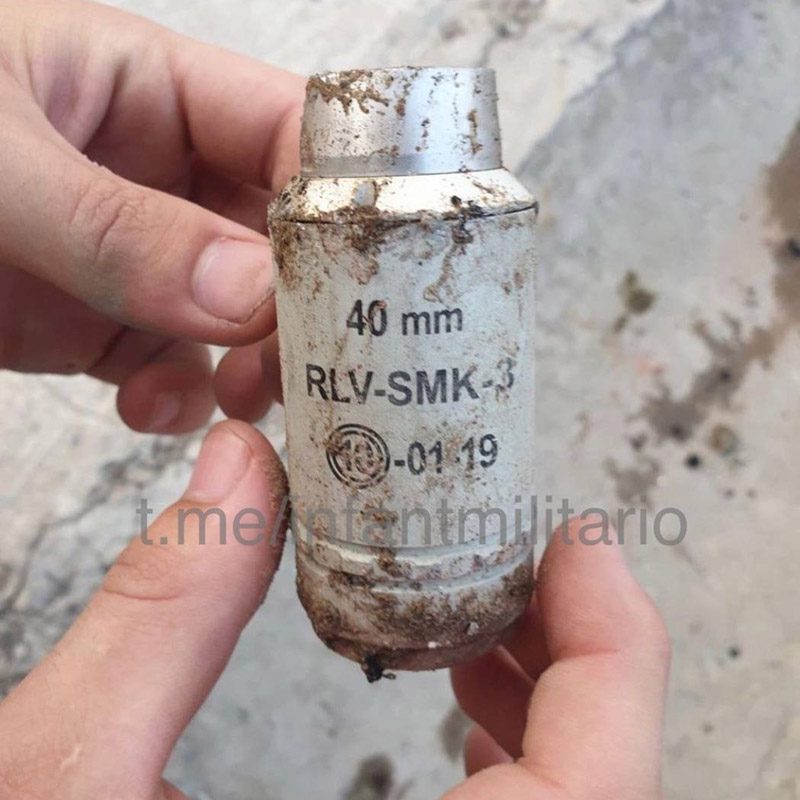
Arsenal AD, Bulgaria
40mm RLV-SMK-3 smoke grenades
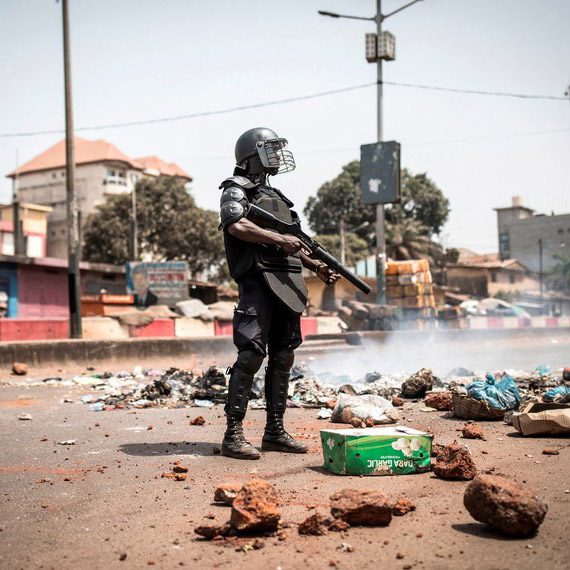
Norinco, China
NARG 38 Grenade launcher
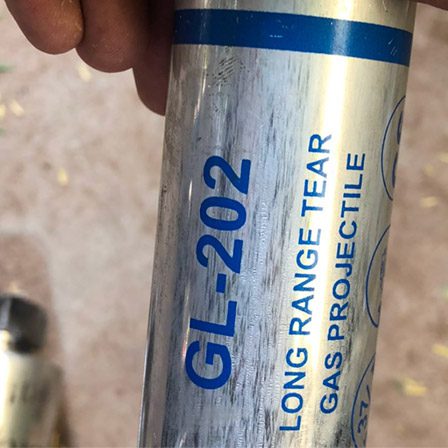
Condor Nonlethal Technologies, Brazil
GL-202 Long Range Tear Gas Projectile
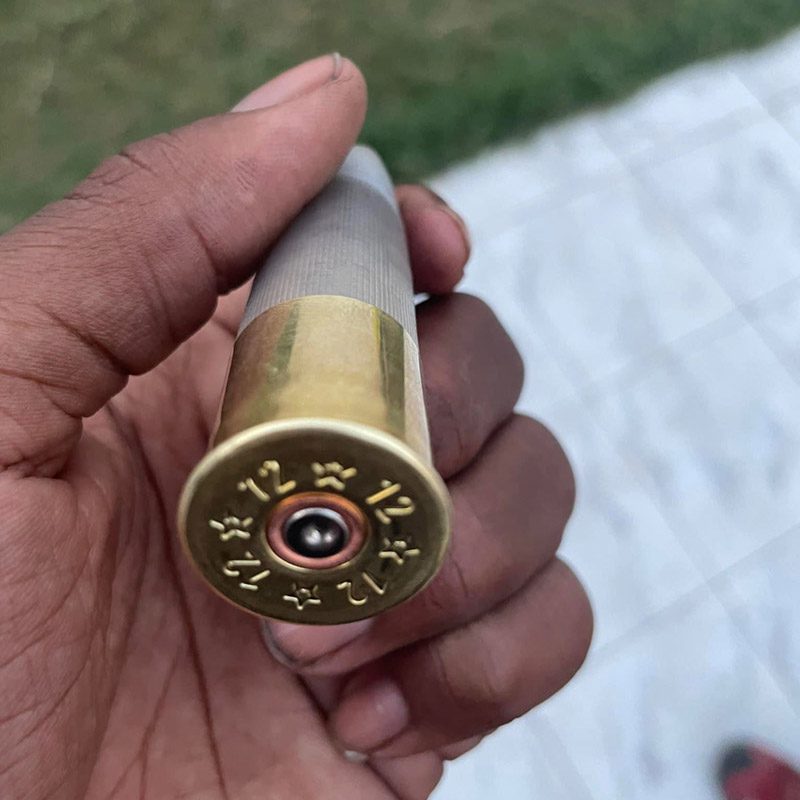
Cheddite, France
Rubber bullet cartidges
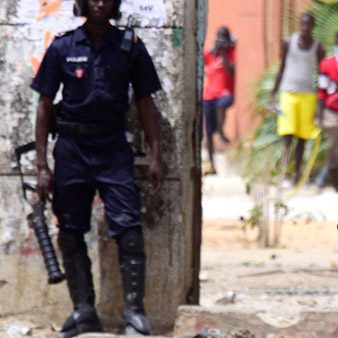
SAE ALSETEX, France
Grenade launcher
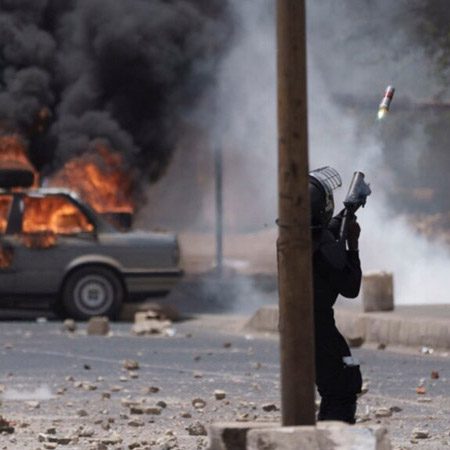
SAE ALTEX, France
Grenade launcher
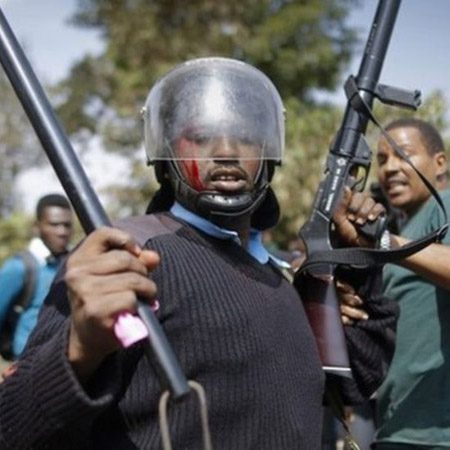
Norinco, China
NARG 38 Grenade launcher
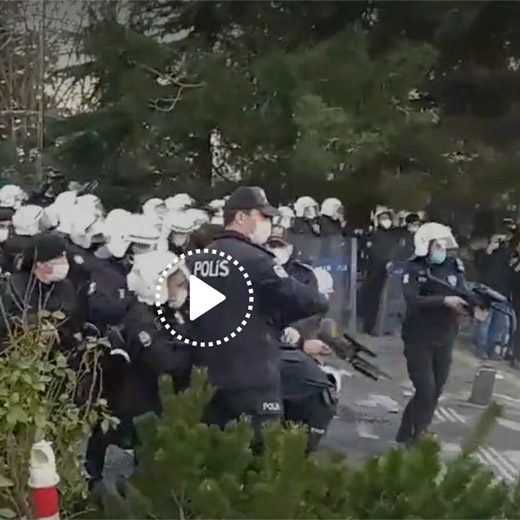
Byrna, USA
Pepperball guns
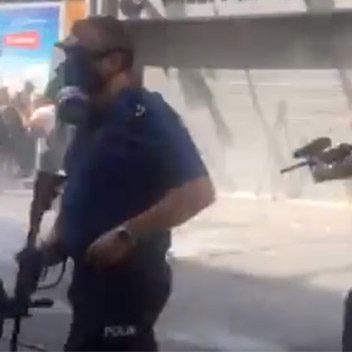
Tippman Sports LLC, USA
Paintball guns adapted for tear gas launching
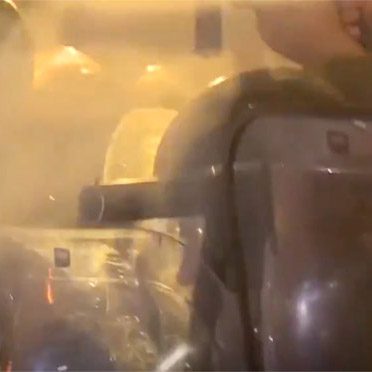
Norinco, China
NARG 38 Grenade launcher
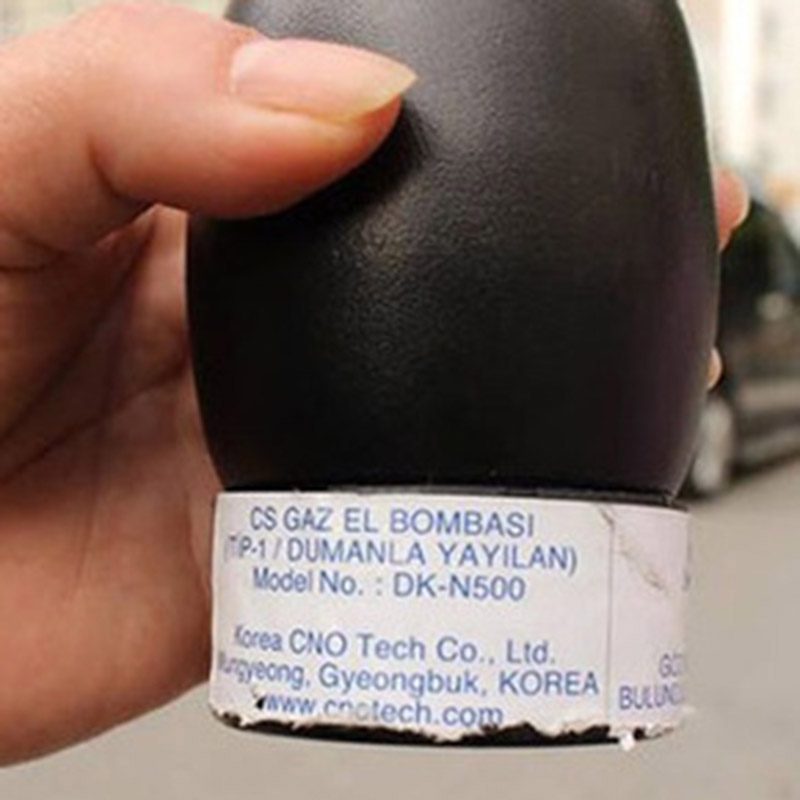
DaeKwang, South Korea, supplied by CNO Tech
Tear gas
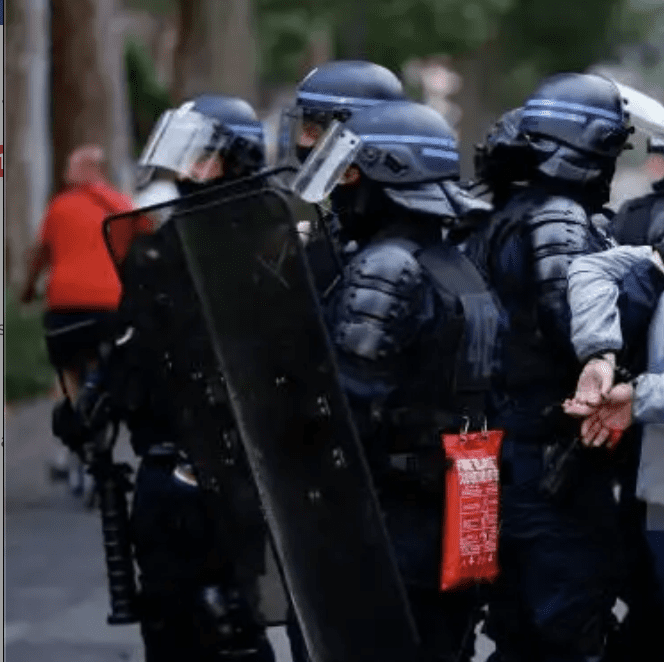
SAE ALSETEX, France
Grenade launcher
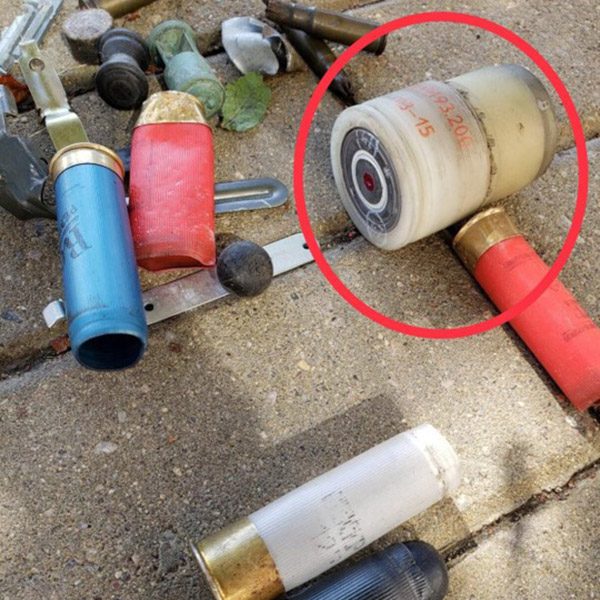
Rosoboronexport, Russia
VGM-93 series grenades
Reviewing protest footage from the last decade, Amnesty International found evidence of reckless use of less lethal weapons in all regions, sometimes with deadly consequences. Most recently, police have used excessive quantities of tear gas to suppress protests in Peru, Pakistan and Sri Lanka. In Sri Lanka, police used water cannon and batons against protesters posing no threat. In 2022 police unlawfully repressed protesters in Greece, Uzbekistan and Iraq. In some countries, such as France and Israel, law enforcement agencies have routinely misused less lethal weapons when policing protests – from the unlawful use of tear gas and rubber bullets against pension reform protesters in Paris and other French cities in 2023, to the repeated targeting of Palestinian protesters with drone-launched tear gas and other weapons.
Also of critical concern is the use of lethal weapons, such as heavy hunting slugs and birdshot fired from shotguns, against protesters in, for example, Iran. This type of ammunition is extremely dangerous, not designed for the policing of protests and should never be used in law enforcement. Dozens of people were unlawfully killed as a result of wounds from security forces unlawfully firing shotguns with such ammunition after protestors took to the streets of Iranian cities to demand an end to political oppression, inequality and impunity.
While local law enforcement authorities bear the primary responsibility for the human rights violations committed by their security forces, both companies manufacturing and exporting equipment as well as states licensing such exports risk facilitating human rights violations, including torture and other ill-treatment. They should not be exporting to countries where less lethal and other weapons might be used unlawfully against protesters.
Given this ongoing, longstanding abuse, companies must carry out human rights due diligence across their value chains which aligns with international standards on business and human rights, including assessing and addressing the human rights impacts of their products and services on third parties. States must introduce regulations or strengthen existing national controls on the trade in law enforcement equipment. Finally, there is an urgent need for strict global trade controls on equipment used for law enforcement to stop it being used to attack those exercising their right to peaceful assembly.
Amnesty International wrote to Cheddite, CNO Tech Co Ltd., Combined Systems Inc., Condor Non-Lethal Technologies, DaeKwang Chemical Corporation Ltd., and NORINCO Group to provide them with an opportunity to respond to the organization’s findings. At the time of writing none had responded.
The last two decades have seen rapid growth in the production and trade of an ever-widening range of less lethal law enforcement equipment. There are now hundreds of different models of chemical irritants, kinetic impact projectile ammunition and launching systems, batons, stun grenades and projectile and direct contact electric shock devices. Lethal weapons that are inappropriate for law enforcement, such as hunting ammunition, are also ending up in the hands of law enforcement agencies and have been used by police in ways that have maimed and killed protesters.
Collectively, this equipment is regularly used in the torture or other ill-treatment of not just protesters, but also detainees, human rights defenders, marginalized groups and many others across the world. While states must tighten and enforce national laws and regulations on the use of force, there is also an urgent need to introduce or strengthen regulations on the trade in these potentially harmful goods.
Regulation in the trade of these goods is fragmentary and in some regions non-existent. There are no global controls on the trade in law enforcement equipment. Some less lethal equipment, such as pepper spray and water cannon, is covered for EU member states by the EU Anti-Torture Regulation 2019/125 which imposes human rights controls on the trade in equipment that can be used for torture or other ill-treatment, and prohibits inherently abusive equipment. The UK and the US have similar provisions in domestic trade controls. But other equipment, such as tear gas and kinetic impact launchers and projectiles, as well as armoured vehicles used for law enforcement, currently fall outside the EU Anti-Torture Regulation, and in practice are not adequately controlled by other regimes, such as the EU Common Position on conventional arms exports and the Arms Trade Treaty (ATT).
Lack of regulation brings a lack of transparency. Unlike the trade in conventional weapons, there are no official state reporting mechanisms or reliable estimates of volumes and patterns of international trade in law enforcement equipment. However, open-source investigations by Amnesty International, the Omega Research Foundation and other NGOs have uncovered the rough outlines of the trade through visual and other documentary evidence.
The Global Trade in Less Lethal Law Enforcement Equipment
Equipment sales have tended to follow historical, often colonial, ties. For example, French equipment is found widely in Francophone Africa and Lebanon. Regional influence and commercial links are also key, hence the prevalence of manufactured or licensed equipment from Brazil, Spain and the USA across Latin America, and Chinese equipment in many parts of Africa. US-manufactured less lethal weapons also appear in Bahrain, Egypt and Israel – countries with strong military ties to the USA.
But the trade in less lethal weapons and crowd control equipment is now increasingly globalized. China, South Korea, the USA and major European states dominate parts of the market, but companies in developing economies, such as Brazil, India, and Türkiye, also produce for their domestic market and export widely. And the range and sophistication of equipment has markedly increased, spreading to all parts of the world.
While states have a clear responsibility to regulate the trade in law enforcement equipment, companies also have a vital role to play.
As outlined in the UN Guiding Principles on Business and Human Rights (UN Guiding Principles), companies have a responsibility to respect all human rights wherever they operate. Companies must develop human rights due diligence policies and processes, separate from those undertaken as part of government licensing assessments, that identify and address the human rights risks related to their operations. Companies exporting law enforcement equipment must apply human rights due diligence before proceeding with the sale to assess if there is a risk that the equipment would be misused by police forces and to address that risk if identified. This is particularly crucial when selling to countries with a poor record of compliance with international human rights law and use of force principles. If companies receive information that their products risk are being misused they should use their leverage to try to mitigate those risks. If it is impossible to prevent or mitigate potential adverse human rights impacts of the use of their products and services, then the company must suspend or cease supplying in a responsible manner.
Ultimately, there needs to be global, legally-binding regulation of this trade. Clear international rules will not obstruct legitimate trade but will bring clarity on states’ human rights obligations and companies’ responsibilities related to the trade in law enforcement equipment, and aid wider efforts to prevent torture and other ill-treatment globally.
COMBINED SYSTEMS, INC
| Company name | Founded | Headquarters | Countries where we identified violations | Types of weapons |
|---|---|---|---|---|
| COMBINED SYSTEMS, INC | 1981 | Jamestown, USA | USA, Egypt, Israel, Tunisia and Colombia. | Tear gas, Grenade Launchers |
Founded in 1981, Combined Systems Inc. (Combined Systems), is one of the largest US producers of less lethal weapons, and historically a major supplier of US law enforcement agencies. Headquartered in Jamestown, Pennsylvania, it has expanded its business in the last decade to markets in the Middle East and Latin America, becoming one of the leading global suppliers of law enforcement equipment. Amnesty International has verified images of their products being misused in the USA, during the violent suppression of the Black Lives Matter protests, as well as in countries where security forces have routinely used unlawful force to crack down on protesters, including Egypt, Israel, Tunisia and Colombia.
As far back as 2011, their characteristic silver tear gas grenades labelled with the blue “CTS” markings appeared in Egypt, when protesters started posting on Twitter images of the used grenades against demonstrators in Cairo, using the hashtags like MadeInUSA. (CTS is an abbreviation for Combined Tactical Systems, which is the company’s law enforcement division.) Data obtained by Amnesty International showed that at the time the US authorities had approved several shipments of Combined Systems crowd control ammunition (including tear gas) to Egypt, despite the fact that Egyptian security forces were using unnecessary, excessive and often lethal force against protesters.
More recently, spent Combined Systems cartridges were photographed in Tunisia in June 2020 when peaceful protests against the socioeconomic situation in the southern gouvernante of Tataouine were met with unlawful use of force, including beatings and the firing of tear gas grenades into homes.
Israel has long been an importer of various types of less lethal equipment manufactured by Combined Systems, including tear gas, stun grenades and kinetic impact projectiles. On 27 July 2017, Amnesty International documented Israeli security forces “firing stun grenades, tear gas and sponge-tipped bullets into a peaceful crowd as they stood at the entrance of the al-Aqsa mosque compound and inside”. Following this incident, the Palestinian Red Crescent Society reported that at least 96 Palestinians were injured in and around the mosque.
The USA has historically been one of Colombia’s main suppliers of law enforcement and other security equipment, including less lethal weapons manufactured by Combined Systems. Combined Systems less lethal weapons caused horrific injuries during the National Strike 2021 in Colombia that saw repressive actions by the police, including excessive use of tear gas against peaceful protesters.
Amnesty International verified the use of Venom – according to the manufacturer, a “30-tube, lightweight, high capacity 38mm grenade launcher” – and Penn Arms hand-held grenade launchers, both manufactured by Combined Systems being used during the 2021 protests in Colombia. In a case in the Siloé neighborhood in Cali, police fired tear gas unlawfully and in excessive quantities – including against peaceful protesters who had nowhere to disperse to – using Venom, a multiple-barrel grenade launcher often mounted on vehicles or tripods, that does not allow precise aiming, as required by UN guidance on the use of less lethal weapons. These launchers are therefore not appropriate for use in crowd control operations or any other law enforcement function. Venom grenade launchers have also been used often against Palestinian protesters by Israeli forces.
NORINCO GROUP
| Company name | Founded | Headquarters | Countries where we identifed violations | Types of weapons |
|---|---|---|---|---|
| NORINCO Group | 1980 | Bejing, China | Kenya, Venezuela, Georgia, Guinea, Bangladesh and Sri Lanka | Armoured vehicles, grenade launchers |
China North Industries Group Corporation Limited, known internationally as NORINCO Group, is a Chinese state-owned conglomerate that manufactures a wide range of conventional weapons systems for the People’s Liberation Army and for export markets, among other activities. NORINCO Group is directly supervised by the State Council, the government of the People‘s Republic of China. According to the Stockholm Peace Research Institute (SIPRI), NORINCO Group is one of the 10 largest arms companies globally. While NORINCO Group products have appeared in many countries, it remains difficult to establish the company’s export partners, due to lack of transparency in the security equipment trade.
Amnesty International verified images of armoured vehicles and less lethal weapons manufactured by NORINCO Group that have appeared in Kenya, Venezuela, Georgia, Guinea, Bangladesh and Sri Lanka amid protest-related human rights violations.
According to the Omega Research Foundation, in 2015 NORINCO Group grenade launchers and vehicles were misused against children and activists who protested the closure of a playground in Kenya. In 2017, NORINCO Group armoured vehicles were also photographed being used during protests in Venezuela, where Amnesty International documented unlawful raids by security forces with NORINCO Group-manufactured armoured vehicles and excessive use of tear gas, leading to the deaths of at least 91 people and over 1,400 people injured.
Amnesty International has also verified unlawful use of the NORINCO Group armoured vehicles and NARG 38 grenade launchers in protests in Georgia, Guinea, Bangladesh and most recently Sri Lanka during the 2022 and 2023 country-wide protests against government policies which were marred by the unlawful use of force. During 2020 protests in Guinea, at least 50 people were killed and 200 sustained injuries by security forces who used firearms and other lethal and less lethal weapons to suppress the protests.
Amnesty International also reviewed and verified 96 videos from protests in Sri Lanka that show a pattern of the unlawful use of less lethal weapons, including kinetic impact projectiles, water cannon and tear gas. In at least three videos, Amnesty International identified the NARG 38 grenade launchers used by Sri Lankan police officers, including against peaceful protesters.
CONDOR NON-LETHAL TECHNOLOGIES
| Company name | Founded | Headquarters | Countries where we identified violations | Types of weapons |
|---|---|---|---|---|
| Condor Non-Lethal Technologies | 1985 | Nova Iguaçu, Brazil | Bahrain, Pakistan, Sudan and Venezuela | Tear gas |
Founded in 1985, Condor Non-Lethal Technologies (Condor) grew from a small company that initially supplied the Brazilian army with smoke grenades to a major global producer of less lethal weapons, exporting to 80 countries. According to verified visual evidence, these countries have included Bahrain, Pakistan, Sudan and Venezuela, where protesters have been subject to unlawful use of force, leading to scores of deaths and thousands of injuries.
More than a decade ago, tear gas manufactured by Condor was widely photographed in Bahrain during the 2011-14 protests which were met with unnecessary or excessive use of force by security forces. In January 2012, Amnesty International documented tear gas being fired directly at protesters and into residential homes in Bahrain, and called for investigations into 12 deaths that followed the unlawful use of tear gas.
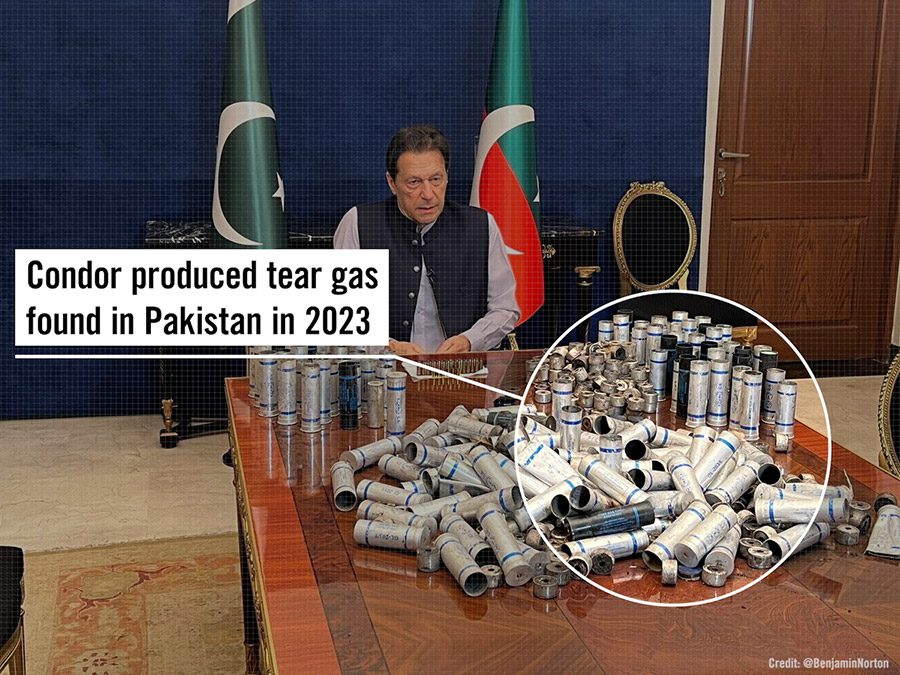
More recently, verified photographic evidence shows that the Sudanese security forces deployed Condor’s GL-202 Long Range Tear Gas Projectile against protesters in Khartoum in November 2021. The Central Committee of Sudanese Doctors (CCSD) documented 537 blunt trauma injuries caused by tear gas projectiles, with 135 impacting the victim’s head and 12 causing injuries to the eye, between 25 October 2021 and 6 January 2022. Amnesty International documented at least 40 deaths, mostly as a result of live ammunition, during the crackdown. Export data published by the Brazilian Ministry of Development, Industry and Foreign Trade (MDIC) showed that grenades and other projectiles worth approximately US$1.6 million were exported from the Nova Iguaçu municipality, where Condor is headquartered, to Sudan in September 2021, suggesting that Condor sold this equipment directly to Sudan.
According to footage verified by Amnesty International, Condor weapons have also been used to violently suppress protesters in Venezuela in 2017, and in Pakistan in February 2023. During 2017 protests in Caracas, protesters were hit directly by Condor-manufactured tear gas grenades. In another video from the same protest, police fired excessive quantities of tear gas. Brazilian government export data registered over US$200,000 worth of exports of grenades and other projectiles to Venezuela in 2010 and over US$100,000 of the same goods to Pakistan in 2021 from Nova Iguaçu municipality, where Condor is headquartered.
DAEKWANG CHEMICAL CORPORATION
| Company name | Founded | Headquarters | Countries where we identified violations | Types of weapons |
|---|---|---|---|---|
| DaeKwang Chemical Corporation Ltd. | 2001 | Gimhae, South Korea | Bahrain, Myanmar and Sri Lanka. | Tear gas |
According to its company website, DaeKwang Chemical Corporation Ltd. (DaeKwang) was set up in 2001 in the South Korean town of Gimhae, and quickly grew into one of the leading producers of less lethal weapons in the country, exporting to Asia and the Middle East. Amnesty International has documented the unlawful use of DaeKwang tear gas and other less lethal equipment in Bahrain, Myanmar and Sri Lanka.
In relation to Bahrain, the company faced international criticism as well as a successful global campaign to halt tear gas shipments in 2015, after the news emerged that in the midst of widespread violations by security forces, DaeKwang Chemical Corporation was preparing to export 3 million grenades worth around US$28 million. In 2014, Amnesty International also campaigned against a prospective shipment of 1,898,515 DaeKwang chemical irritant grenades to Türkiye, after reckless use of less lethal weapons during the Gezi Park protests had led to the deaths of at least three protesters, with over 8,000 people injured. According to export data reported in the South Korean media, 668,000 grenades were transferred to Türkiye during the unrest.
More recently, according to research by Amnesty International, DaeKwang flashbang grenades and tear gas have been used in crackdowns on protesters in Myanmar in 2021 and during anti-government protests in Sri Lanka in 2022. In Myanmar, authorities used DaeKwang DK-44 flashbang grenades as part of a campaign to suppress dissent which included the use of premeditated lethal force.
In Sri Lanka, Amnesty International documented the unlawful use of less lethal weapons in the context of largely peaceful protests against government policies in at least 17 protests held in 2022 and 2023, including the excessive use of DaeKwang-manufactured tear gas grenades. Amnesty International reviewed trade data provided by the Omega Research Foundation and World Without War (South Korea), confirming that at least 15,000 DaeKwang tear gas grenades were licensed by the Gyeongnam Provincial Police Agency in South Korea and sold to Sri Lanka in 2019.
CNO TECH CO LTD.
| Company name | Founded | Headquarters | Countries where we identified violations | Types of weapons |
|---|---|---|---|---|
| CNO Tech Co, Ltd. | 1997 | Seoul, South Korea | Bahrein, Iran, Sri Lanka and Peru | Grenade launchers, tear gas |
CNO Tech Co Ltd. (CNO Tech) was established in 1997 in Seoul and grew to be a leading Korean manufacturer of lethal and less lethal weapons, according to information on the company’s website. The company says it supplies the South Korean army and police and exports to 30 countries around the world, including the Bangladeshi, Indonesian and Sri Lankan police in Asia; Oman, Saudi Arabia and UAE in the Middle East; Colombia, Mexico and Peru in Latin America; the Estonian, Georgian and Turkish police in Europe; and the Nigerian, Gabonese and Sudanese police in Africa.

Tear gas grenades produced and supplied by CNO Tech have been used by law enforcement in a number of protests where Amnesty International and other organizations have documented unlawful use of force. As with Condor and DaeKwang, CNO Tech faced widespread criticism from human rights groups for its role in providing tear gas to police forces accused of a range of human rights violations in Bahrain in 2012. In 2013, Amnesty International documented the misuse of CNO Tech tear gas in Türkiye during Gezi Park protests, when police use of huge quantities of tear gas, as well as water cannon and plastic bullets, during what were overwhelmingly peaceful protests.
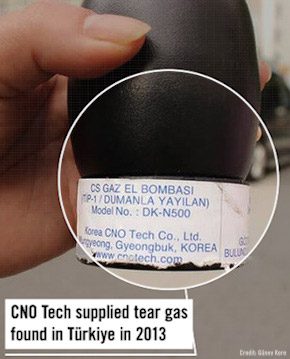
More recently, Amnesty International has also verified footage and obtained photos showing police using CNO Tech tear gas grenades to suppress protests in Iran, Sri Lanka and Peru. During 2022-2023 protests in Sri Lanka, Amnesty International documented numerous cases of the misuse of tear gas by police officers – from firing directly at peaceful protesters and firing against protesters already dispersing, to firing close to schools and exposing children to high levels of chemical irritant. According to the trade data obtained by World Without War and the Omega Research Foundation, Sri Lanka imported at least 5,000 tear gas grenades from CNO Tech in 2019.
Spent CNO Tech tear gas grenades were also seen in videos and images from the anti-government rallies in Peru in 2022 and 2023, where 47 people died and hundreds were injured as a result of a police crackdown on largely peaceful protests. Amnesty International also verified footage showing Peru police officers firing from CNO Tech-supplied SJ600N grenade launchers during the same protests in Lima.
CHEDDITE
| Company name | Founded | Headquarters | Countries where we identified violations | Types of weapons |
|---|---|---|---|---|
| Cheddite | 1901 | Livorno, Italy Bourg-lès-Valence, France | Syria, Myanmar, Iran, Senegal | Ammunition |
Cheddite is a French-Italian company established in 1901 in the town Livorno, under the name of Societa Franco Italiana Esplosivo Cheddite. In 1980, Cheddite bought the French Gevelot factory, laying the foundation for its local affiliate, Cheddite France. According to the company website, the company now specializes in the production of shells, primers and other components with over 1.2 billion primers and 1 billion cases produced per year.
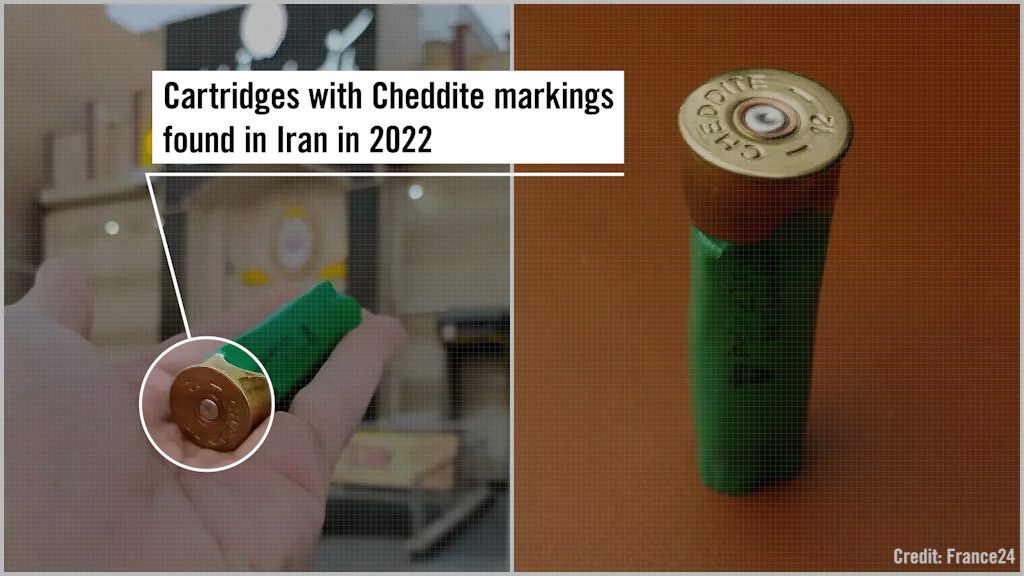
Cheddite empty cases and components are widely traded, and can be filled and assembled by other companies with hunting ammunition (lead shot), which has been used against protesters in Iran, despite being completely inappropriate for the policing of protests. Cheddite cartridges could also be filled with multiple projectile less lethal rubber balls, which are inherently inaccurate and risk causing serious injuries to targeted individuals and bystanders; the production and sale of this type of ammunition should be prohibited.
While lack of transparency makes it difficult to trace supply chains of Cheddite products, verified photographs of spent Cheddite-branded shotgun shells have appeared on social media, often posted by protesters, in Iran, Myanmar and, most recently, Senegal.
CIn May 2023, protesters gathered at least 50 used cartridges with Cheddite markings used to crack down on the anti-government protests in Dakar. Amnesty International documented the deaths of at least 23 people during these protests, including three children, from the use of firearms and beatings, with at least 400 people injured. Investigation by the French media outlet Mediapart showed that it is not the first time in 2023 that Cheddite-marked ammunition had been used against protesters in Senegal.
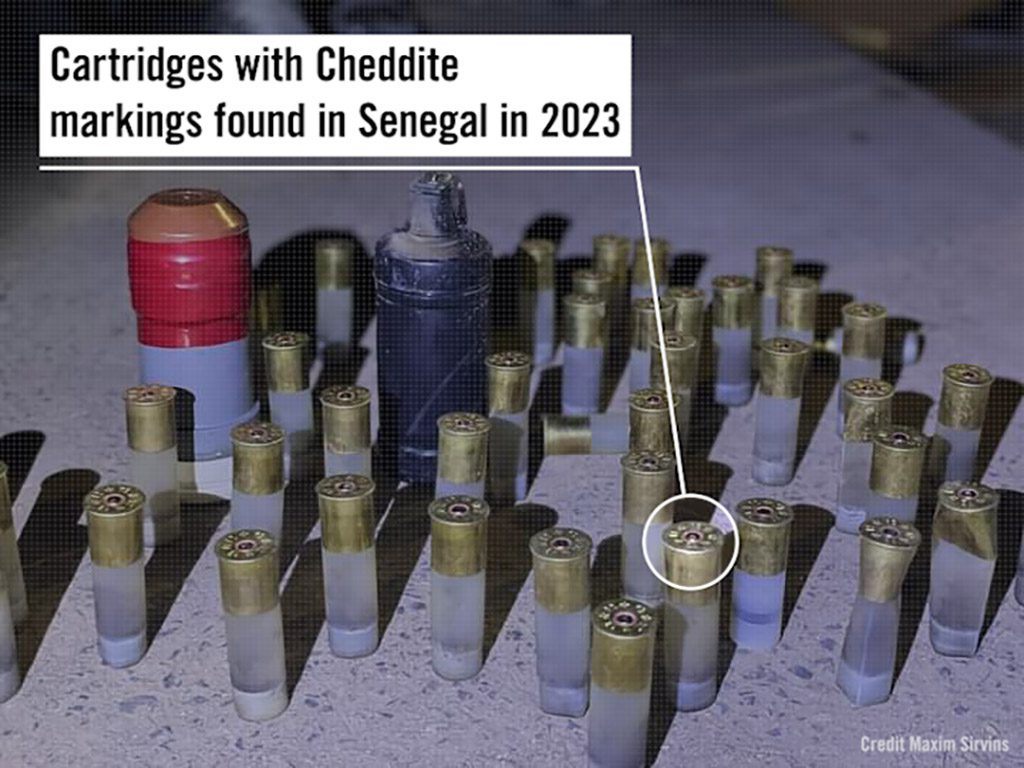
During the March 2021 protests when 12 people died as a result of gunshot wounds, protesters gathered images of weapons used by security forces to unlawfully suppress the demonstrations. Most of the weapons that was identified through interviews, images and medical records were manufactured by French companies, including Cheddite.
Empty Cheddite cartridges have also been found at protest sites in Iran where violent repression has led to multiple deaths. During 2022 protests, security forces unlawfully killed hundreds of people, including scores of children, after they took to the streets across the country to demand an end to political oppression, inequality and impunity. Evidence gathered by protesters and verified by Amnesty International shows how various Iranian security forces fired this ammunition directly at protesters, causing numerous deaths and horrific spray-pattern injuries, typical of those caused by lead shot. Spent cartridges gathered by protesters showed that while most of the ammunition used were produced in the country by one of Iran’s largest ammunition manufacturers, Shahid Shiroudi in at least 13 cases Iranian law enforcement officers used Cheddite-brand.
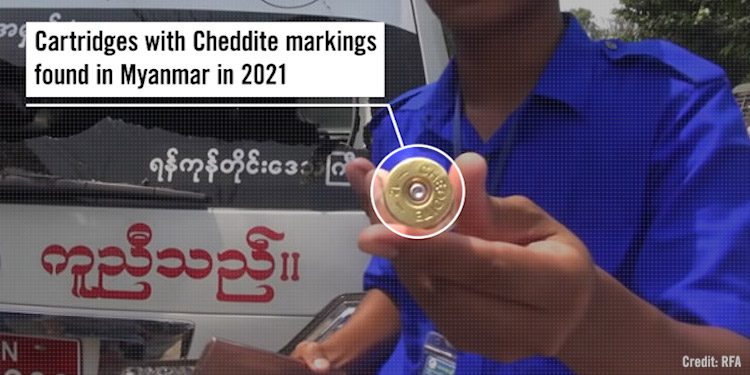
Finally, in March 2021, images of Cheddite-branded cartridges were photographed at protests in Myanmar. Since the coup on 1 February 2021, Amnesty International has documented widespread human rights violations as part of the military’s violent crackdown on protesters, activists and political opponents across the country, as well as war crimes and likely crimes against humanity by the military during ongoing armed conflicts.
Available evidence suggests that Cheddite may have exported brass bases or other parts of cartridges to the Turkish shotgun shell manufacturer, Yavascalar YAF, and that the Turkish company sold the cartridges on to Myanmar. Investigations by Italian NGOs and France 24 have uncovered business links between Cheddite and ZSR Patlayici Sanayi A.S., Yavascalar YAF’s parent company, including the previous ownership of shares in the Turkish firm.
According to a 2014 study by the Small Arms Survey, shotgun cartridges with Cheddite brass produced by the Turkish company Yavascalar YAF were also found in Syria during the armed conflict in which government forces committed gross violations against protesters, including extrajudicial killings, torture and other crimes under international law.
The use of tear gas, water cannon, rubber bullets and other less lethal weapons as tools of intimidation and punishment against peaceful protesters has caused thousands of avoidable injuries and scores of deaths across the world. The cases highlighted here vividly show how the lack of transparency and regulation of the trade in law enforcement equipment is facilitating human rights violations and undermining the right to protest in all regions. It also shows that lax controls over the trade in hunting ammunition means that protesters are being injured and killed by a weapon that should have no place in law enforcement.
Domestic, regional and global regulations on the trade in law enforcement equipment would not just stop supplies to countries where human rights abuses are proliferating, but would send a powerful message that these abuses are not tolerated and that states will face consequences if they allow such abuses to continue.
Amnesty International, working with a network of over 30 NGOs, is calling on states to support a robust Torture-Free Trade Treaty. Such a treaty would prohibit inherently abusive law enforcement equipment – such as multiple-projectile rubber bullets – and strictly control the trade in law enforcement equipment that is often used for torture or other ill-treatment, such as tear gas, single projectile rubber bullets, batons or stun grenades.
At the global level, a series of statements, studies and resolutions in the UN system from the early 2000s onwards have highlighted the obligations upon all states to regulate the trade in law-enforcement and other goods to prevent their use in torture and other ill-treatment. In September 2017, the EU, Argentina and Mongolia launched the Alliance for Torture-Free Trade at the margins of the UN General Assembly in New York. The Alliance currently comprises over 60 states from all regions of the world pledging to “act together to further prevent, restrict and end trade” in goods used for torture, other ill-treatment and the death penalty.
Building on the EU anti-torture regulation and the developments at the UN, regional bodies have also backed controls on this trade.
On 12 October 2023, the Special Rapporteur on Torture and Other Cruel, Inhuman or Degrading Treatment or Punishment presented a thematic report recommending an international, legally-binding instrument that would prohibit inherently abusive equipment and introduce strict human rights-based trade controls on other law enforcement equipment, which would apply to an extensive list of law enforcement goods.
Amnesty International is calling on states to get behind these developments and fully and publicly commit to the establishment of a robust Torture-Free Trade Treaty to put an end to the damaging, irresponsible trade in less lethal weapons and equipment.
Only through the adoption of such a legally-binding treaty will there be adequate clarity on states’ human rights obligations related to the trade in law enforcement equipment, supporting wider efforts to prevent torture and other ill-treatment globally. Binding international law is the only means to ensure that companies – wherever they are based – trading in inherently abusive equipment will have no international market for such goods; and that companies manufacturing and trading in controlled goods are finally subject to globally agreed human rights controls.
In addition, existing international law – such as the Arms Trade Treaty – must be fully implemented to ensure that goods like hunting ammunition do not end up in the hands of law enforcement officials policing protests, and that firearms and armoured vehicles are responsibly traded to police and security forces around the world.
Companies also have a vital role to play to put an end to the irresponsible trade in law enforcement equipment. There is now a clear global consensus that companies have a responsibility to respect all human rights wherever they operate. This is expressly recognized in global standards on business and human rights such as the UN Guiding Principles on Business and Human Rights (UN Guiding Principles), unanimously endorsed by the UN Human Rights Council in June 2011. This means that companies exporting police equipment must introduce human rights due diligence across their value chains, including assessing and addressing the human rights impacts of the use of their products and services for law enforcement. It also means that companies should cease exporting law enforcement equipment to police forces that regularly misuse such equipment to violate human rights, even if their home state would allow them to do so.
Only through global, legally-binding regulation and human rights-compliant business conduct can supplier states and companies finally put an end to their part in an irresponsible trade that puts powerful weapons in the hands of abusive law enforcement officials, and thereby endangers the lives and physical integrity of protesters the world over.
Recommendations
Amnesty International is calling on states to:
- introduce regulations or strengthen existing national controls on the trade in law enforcement weapons and equipment used for torture or other forms of ill-treatment;
- support the creation of a global, legally binding instrument that prohibits inherently abusive law enforcement equipment and strictly controls the trade in law enforcement equipment that is often used to torture or other ill-treatment;
- [for states who are not yet members], join the Alliance for Torture-Free Trade by emailing [email protected];
- introduce legislation to require companies to conduct human rights due diligence across their operations and value chains.
Amnesty International is also calling on companies that manufacture law enforcement equipment to:
- introduce human rights due diligence across their value chains, including assessing and addressing the human rights impacts of their products and services on third parties;
- cease exports of all law enforcement equipment that is likely to be used in human rights violations, including torture or other ill-treatment, irrespective of the legality of such exports under domestic licencing systems.
TAKE ACTION
Throughout history, protest has been a powerful tool for change. But governments around the world are cracking down on protests and protesters risk being harmed, hurt, or even killed by the misuse of policing equipment. Demand your government supports a treaty to regulate the trade in policing equipment today to ensure it does not end in the hands of abusive police forces.
SUPPORT THE CAMPAIGN
